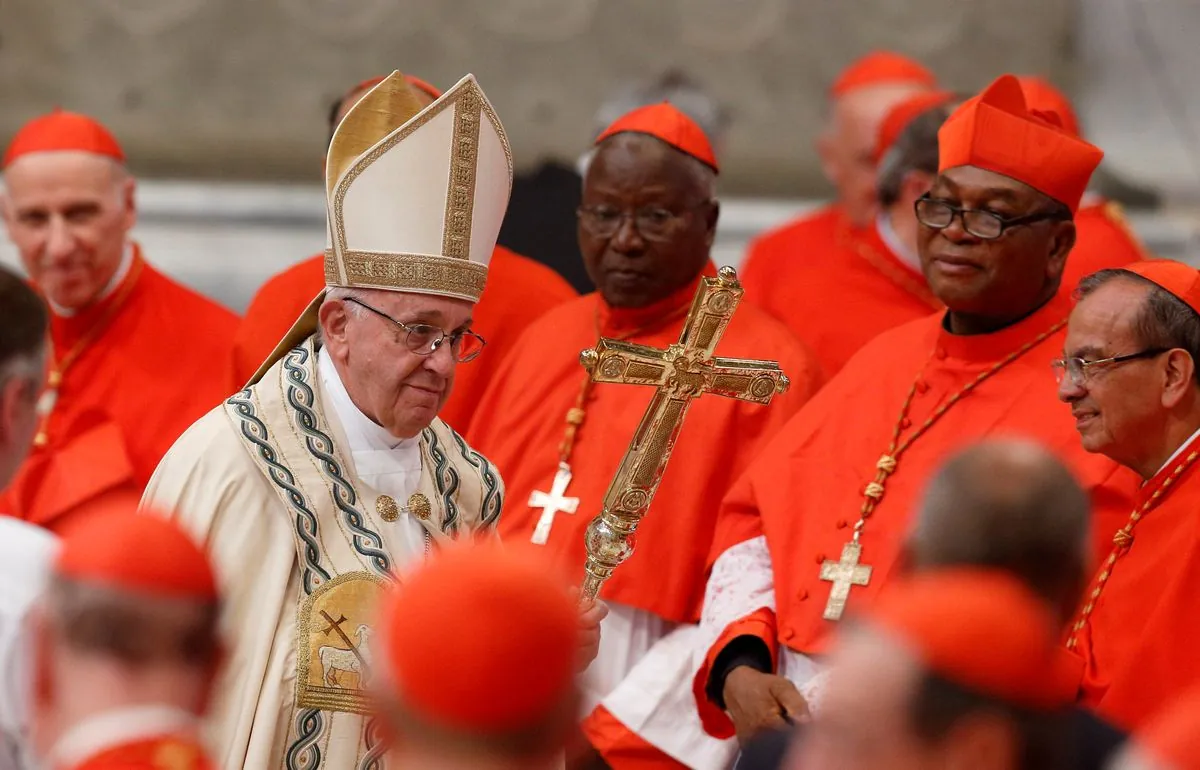Pope Francis has issued a call to action for the world's Catholic cardinals, urging them to adopt a "zero deficit" approach to managing the Vatican's economic assets. This directive, revealed in a letter published by the Vatican on September 20, 2024, primarily targets the 236 cardinals, many of whom reside in Rome and oversee Vatican offices.
The pontiff's appeal comes as part of ongoing efforts to enhance the Vatican's financial management. While specific details were limited, Francis emphasized the need for "a further effort" from these high-ranking officials of the Roman Catholic Church, which boasts a global membership of 1.4 billion.
Since assuming his role in March 2013, Pope Francis has been at the forefront of Vatican financial reforms. However, his tenure has not been without challenges, including several financial scandals. A notable incident involved a Vatican investment in London property, resulting in a substantial loss of approximately 140 million euros.
The Vatican's financial landscape is complex, comprising two distinct entities: the internationally recognized sovereign Holy See and Vatican City, a 108-acre enclave within Rome. These entities maintain separate budgets, with Vatican City's income, particularly from the popular Vatican Museums, often offsetting deficits in the Holy See's budget.
In his letter, Francis stressed the importance of "implementation of ethical policies that allow for improving the economic performance of existing assets." He also called for concrete examples of cost reduction, emphasizing a "spirit of essentiality" and careful prioritization.
"On the cost reduction side, we need to give a concrete example so that our service is carried out with a spirit of essentiality, avoiding the superfluous and selecting our priorities well."
This financial prudence aligns with the Vatican City's unique economic structure. As the world's smallest independent state, it operates without taxes or public debt. The economy relies heavily on tourism, museum admissions, and the sale of postage stamps and publications.
Despite recent challenges, there are positive indicators. In July 2024, Vatican City's central bank reported a surplus of 45.9 million euros for its financial and real estate holdings in 2023. This financial health is crucial for supporting various Vatican institutions, including the Vatican Library, which houses over 1.1 million printed books and 75,000 manuscripts.
The Pope's call for financial responsibility extends beyond mere budgetary concerns. It reflects a broader commitment to ethical stewardship of resources, a principle that resonates with the Vatican's role as both a spiritual center and a sovereign entity maintaining diplomatic relations with over 180 countries.
As the Vatican continues to navigate its financial future, the outcome of a recent trial at London's High Court, related to the aforementioned property investment, remains pending. A verdict is expected later this year, potentially impacting the Vatican's financial landscape and reform efforts.
